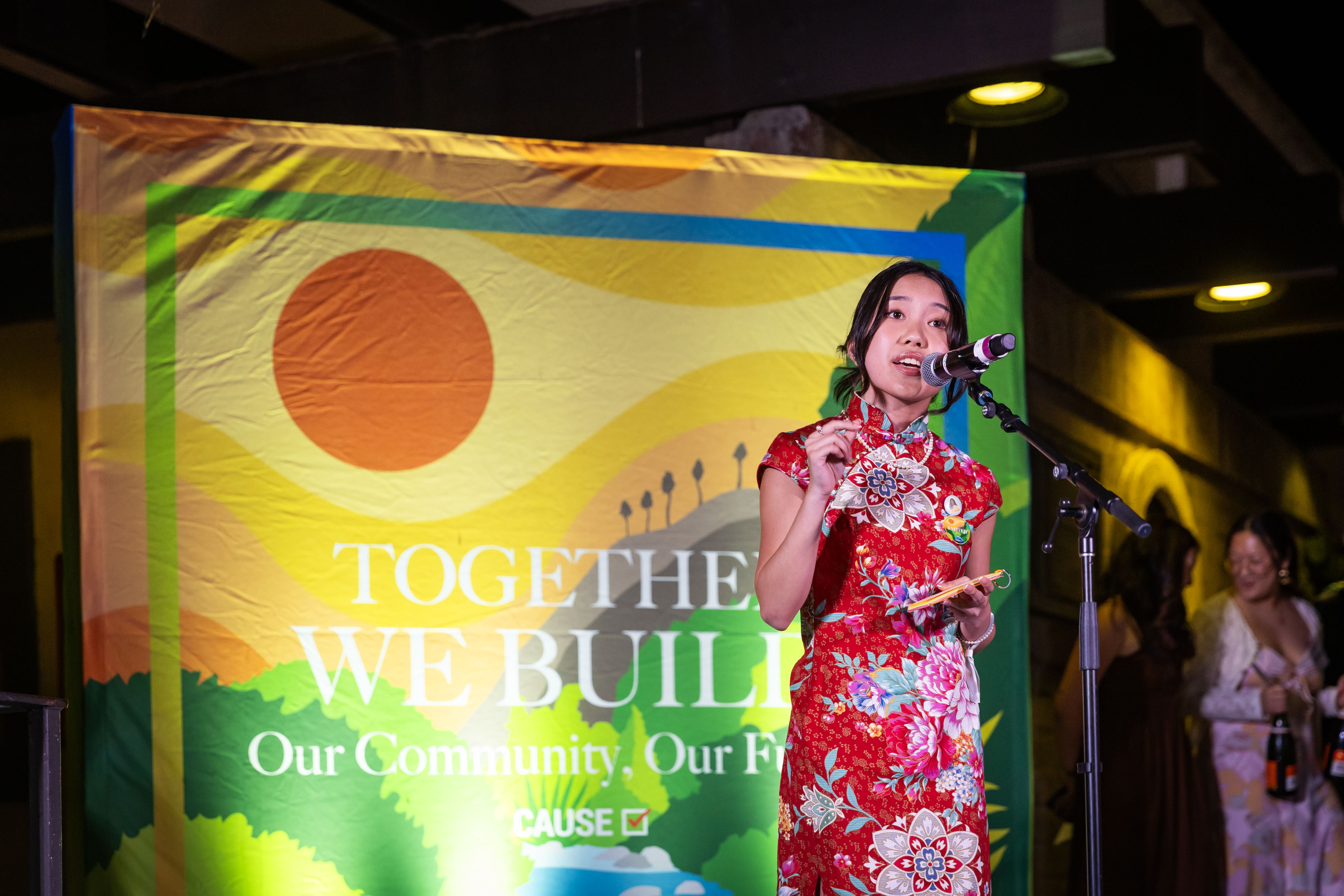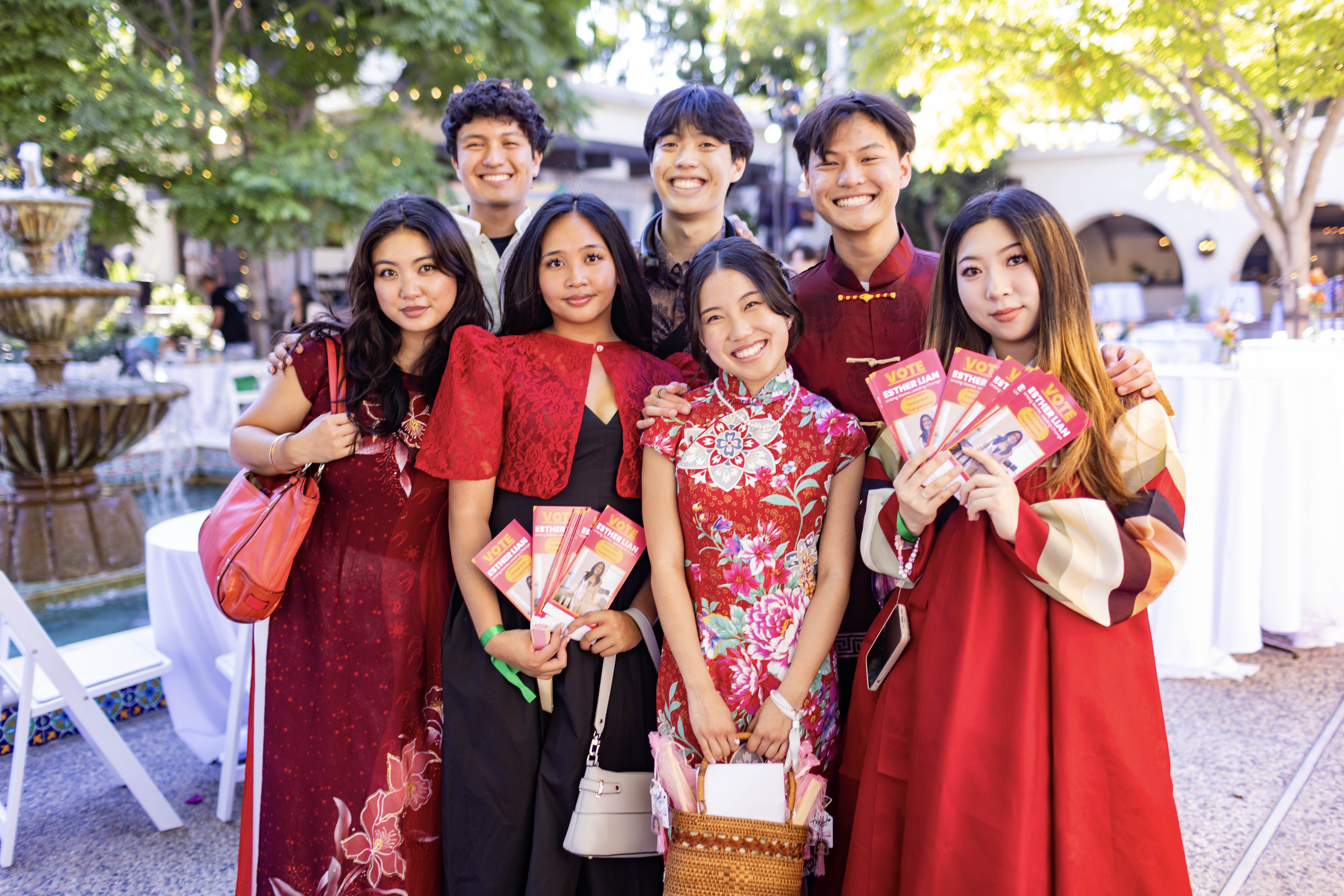ASIAN AMERICAN COMMUNITY FELLOWSHIP REFLECTION: ESTHER LIAN
 ASIAN AMERICAN STUDIES COMMUNITY FELLOWSHIP REFLECTION
ASIAN AMERICAN STUDIES COMMUNITY FELLOWSHIP REFLECTION
By Esther Lian
Summer 2025
The Office of Assemblymember Mike Fong represents one of California’s 80 State Assembly districts—and one of just two with an Asian-majority population. Nearly half of its residents are foreign-born, and Mandarin, Cantonese, and Spanish are widely spoken throughout the community. I know these facts not only from statistics, but from lived experience: as a first-generation immigrant, I have called AD-49 home for the past ten years.
This past summer, I had the opportunity to intern with Assemblymember Fong’s District Office through the CAUSE (Center for Asian Americans United for Self Empowerment) Leadership Academy, a program dedicated to developing civic leaders in the Asian American, Native Hawaiian, and Pacific Islander (AANHPI) community.
Of the 15 chosen members in CAUSE’s 2025 cohort, I was selected by my peers to be one of two candidates to compete in a mock election for AD-49. My campaign was built on a single principle: that every voice, regardless of nationality, language, or political beliefs, deserves to be heard and represented.
It was with this conviction that I spearheaded Voices of the District [https://www.instagram.com/linkwithlian49/], a platform that gives a voice to constituents, many of whom feel excluded from our politics. Over 20 hours, I conducted one-on-one interviews with 10 constituents on both sides of the political spectrum—listening to their frustrations, hopes, and dreams for the community. They included community organizers, religious leaders, working-class parents, and high school students, to name just a few. By intentionally putting their voices in the foreground, I endeavored to mirror the kind of representation and electorate-centered interaction that Asian Americans deserve.
One of my most memorable interviews was with a Mandarin-speaking single mother who, when asked to place herself on a political scale of one to ten, Democrat to Republican, unequivocally chose ten. Our political ideologies were different on many issues, and I struggled to keep up with her Mandarin. Yet, I returned to speak with her again and again, for three hours in total. Her strong opinions challenged my willingness to be uncomfortable, my patience in seeking to understand, and my determination to find common ground. In the process, we listened to each other respectfully and found areas of agreement we did not anticipate, all without compromising on empathy or honesty.
It was hard to convince my team that her voice should be included in our campaign, especially since she vocalized her firm support for a number of controversial policies. Yet, after extensive deliberation, we agreed that inclusive dialogue entails listening to everyone, not just those we agree with. By giving her the space to be heard, I wasn't endorsing all her views; I was reflecting the true diversity of voices in our district. There is a real temptation to only represent the voices and opinions that resonate with us, or in my case, that fits conveniently with my campaign. The harder, but much needed, option is to wrestle with and persevere for those I didn't expect to show up. True representation cannot be exclusive; it must extend to those who are voiceless or hesitant to speak up in fear of retribution.
At a personal level, I learned to lead a group through disagreement without derailing us from our larger objectives. I am proud to be able to say that our campaign remained true to meeting the needs of the community I sought to represent—with policies that stem, not from the ballot box, but from the ground.
Through this internship experience, I saw the ways in which civic engagement and policy touch the daily lives of immigrant Asian American families such as mine. From language barriers to generational gaps, structural divides consistently discourage our communities from engaging openly and honestly. Hearing stories and perspectives firsthand deepened my understanding of the true stakes of representation and renewed my commitment to serving AANHPI communities by first centering on listening—because meaningful change begins when we make space for every voice to be heard.
